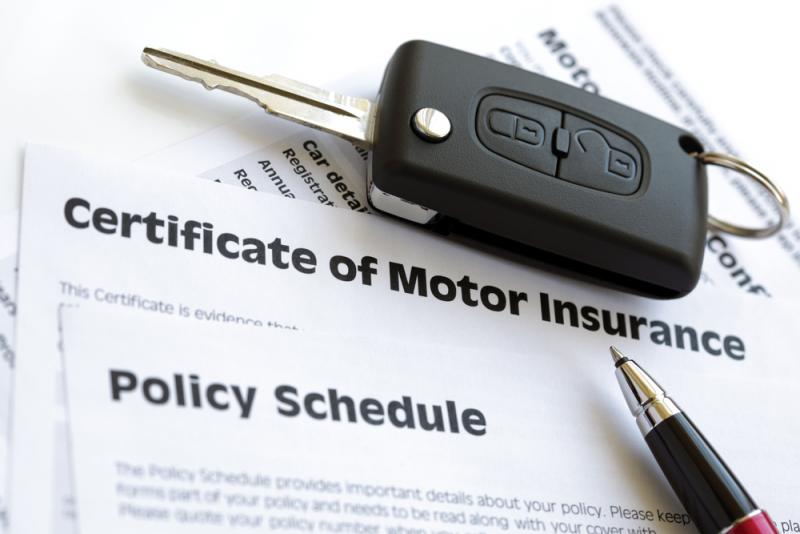
Your car or van needs insurance unless it’s declared off-road.
All insurers have specific rules and policies you need to follow, and not following them could negatively impact your cover.
Here are 11 factors that could do just that.
1. Lying to lower your price
Tell the truth when it comes to answering insurance policy questions. Lying to lower the price of your insurance can make your policy invalid and impact you when you claim.
Knowingly giving false information could also reduce the amount you can claim for - or could even mean your claim is rejected entirely.
2. Incorrect address
You can leave your car elsewhere if you’re staying there temporarily.
But giving us an address you don't live at to lower your premium could affect your policy or negatively impact you when you claim.
Always keep us updated when you change addresses too.
3. Not keeping in touch
Let us know if anything changes during your policy term, like changing your address, mileage or job.
For example, a new job could mean you need your car for business use or travel fewer miles, while a change of address could mean you’re parking in a safer place.
Factors like these influence your insurance price and policy. Find out what you need to tell your insurer.
4. Using a middleperson
The only way to get a legitimate quote with us is via our website, a comparison site or over the phone.
We don’t use insurance brokers. Read here to see why we avoid using them.
5. Other drivers using your vehicle
Only you and your named drivers should be using your car. But another driver can use your car if they have the ‘driving other cars’ extension on their policy.
This only gives third-party cover, meaning an insurer won’t cover damage to yours.
Only drivers named on your certificate are fully covered to drive your car. If you’re confused, contact your insurer and read our driving other cars mythbuster.
6. Risky driving and using an unmaintained car
Drive sensibly. Speeding, risky acceleration and handbrake turns can all lead to a motoring conviction, impact your claim or lower the amount you receive.
Plus, keep your car in roadworthy condition. Report problems when you see them, don’t drive if you think your car has a serious issue and don't miss your MOT.
Remember, not having your MOT is illegal.
Learn more about how MOTs work and how penalty points can affect your insurance.
7. Not informing us about a previous incident
We ask for information about previous incidents before you take out a policy.
If you try to claim for unrelated damage, deliberately miss something or it’s obvious you haven’t told us about an incident, then it can be considered a fraudulent or exaggerated claim.
Having pre-existing damage won’t automatically cause an issue with your cover - it’ll only cause a problem if you dishonestly claim for unrelated damage.
Not disclosing a previous incident means we may need to proportionally settle. It all depends on how much someone misrepresents an incident and to what degree.
Any of the above issues can:
- impact your ability to claim
- lower the amount you receive
- mean we’ll try to recover any costs we incur
8. Underestimating your mileage
You only need to give us an estimate of your mileage.
But if you think your mileage has changed significantly, let us know. Falsely declaring a significantly lower mileage can impact your policy, premium and claim.
However, it’s not all bad news: informing us about mileage is one of the ways to lower your premium.
9. Not having the correct class of use on your policy
People make the mistake of thinking that social use covers them for everything, including driving to work, but it doesn't.
For example, driving to work or the train station to commute means you’ll need commuting on your policy.
Using your car during the working day or for work means you’ll need business use, while couriers need carriage of goods for hire and reward cover.
Working from home can make things more difficult to classify, so always check with your insurer if you’re confused.
Read here to see what class of car insurance you need.
10. Some car modifications void your insurance
You need to let us know if you have a modification. For example, you need to tell us about modifications like engine remapping.
There are some 'unacceptable modifications' that we won't cover. These can vary by insurer, so check your policy book or contact us if you’re not sure.
We can refuse claims if you’ve used an unacceptable modification.
If you’ve made an acceptable modification, we may reduce your settlement and ask for additional payment from you for cover.
11. Driving in unusual locations
We don’t cover you for driving your car in dangerous or unusual places like racecourses. We also won’t cover you for organised motorsports or rallying.
Your policy book can let you know more, and you can always contact us if you’re confused.


